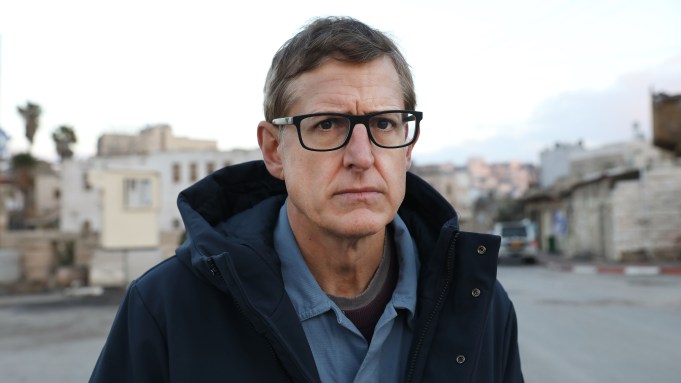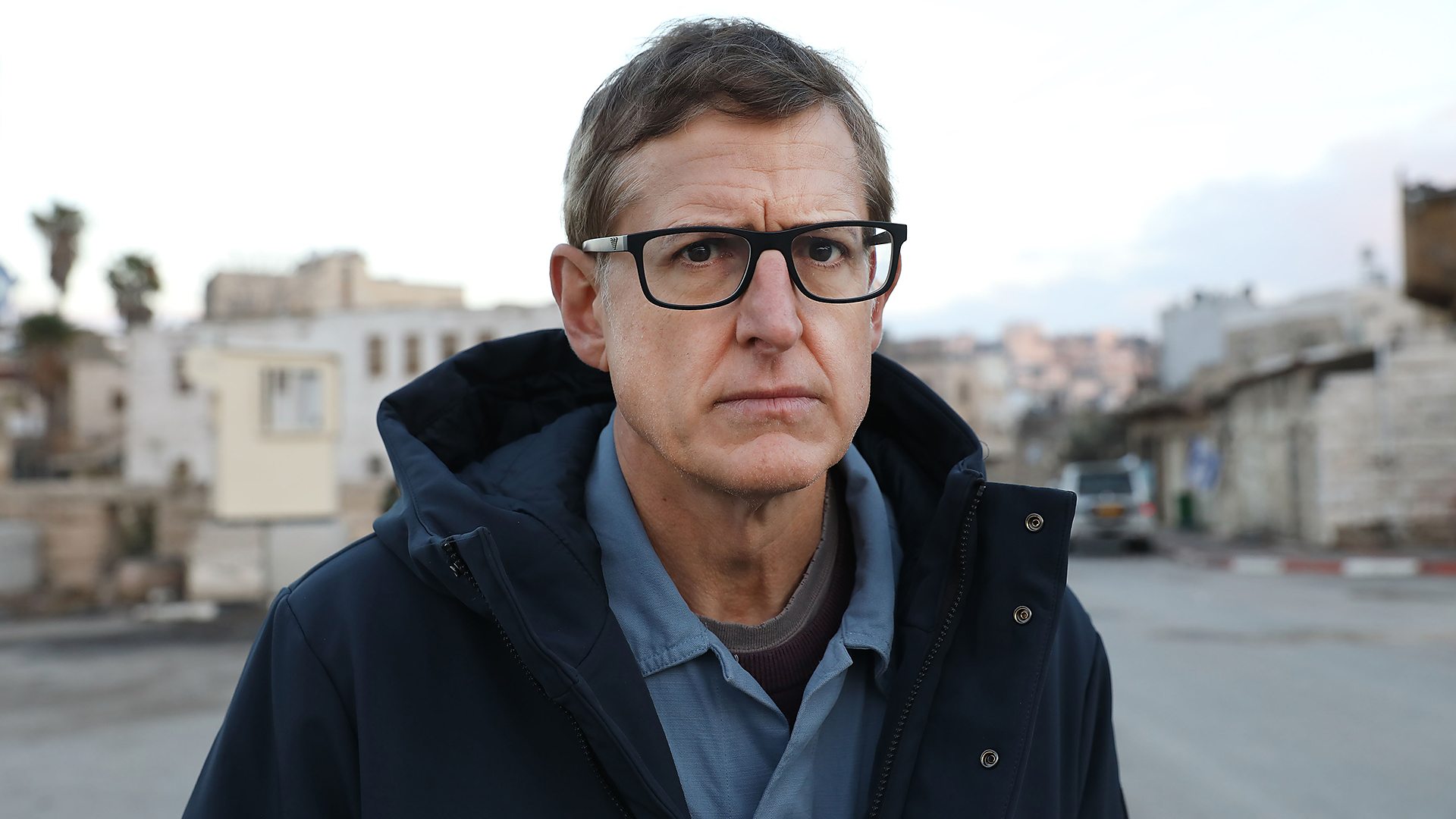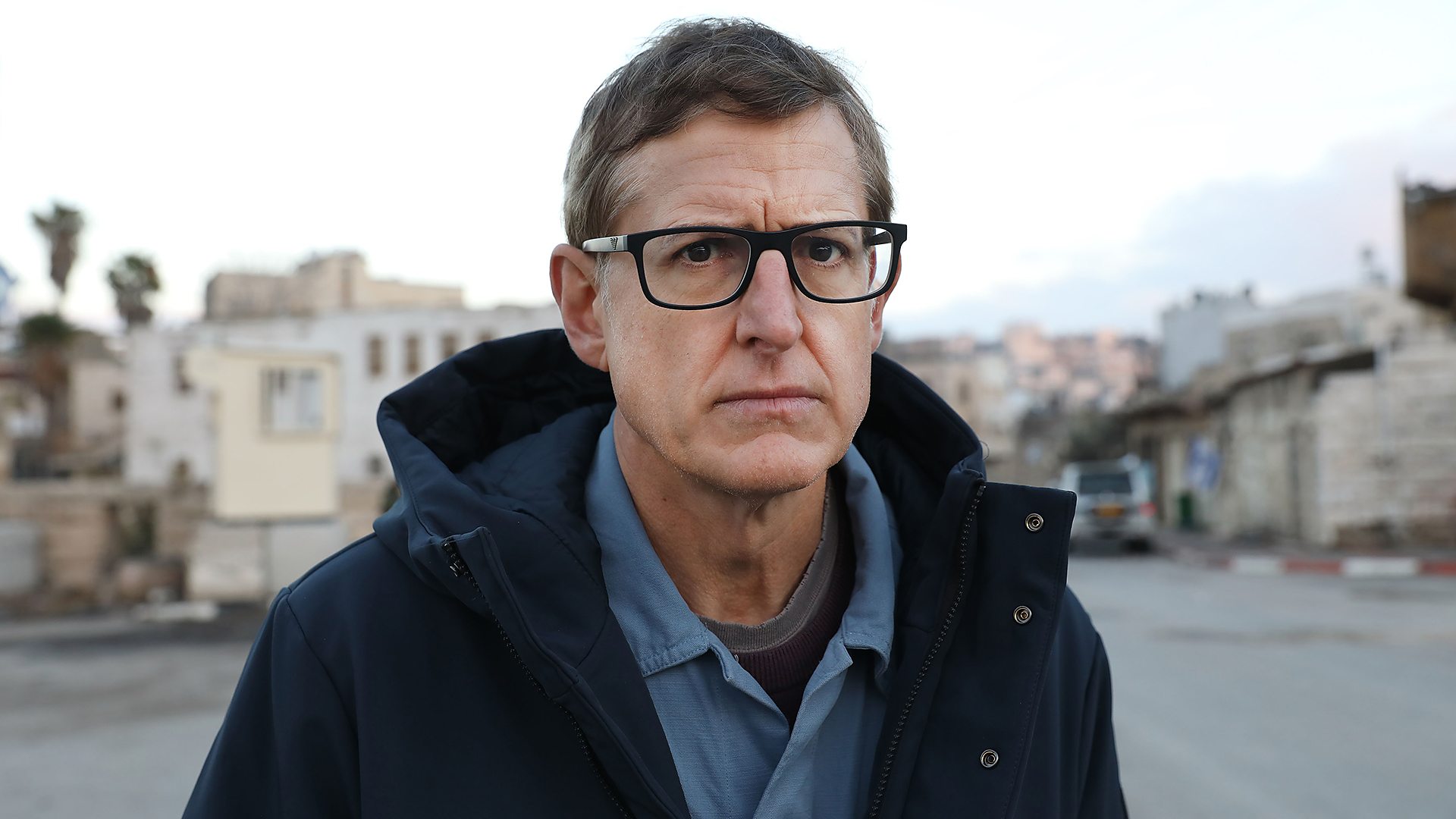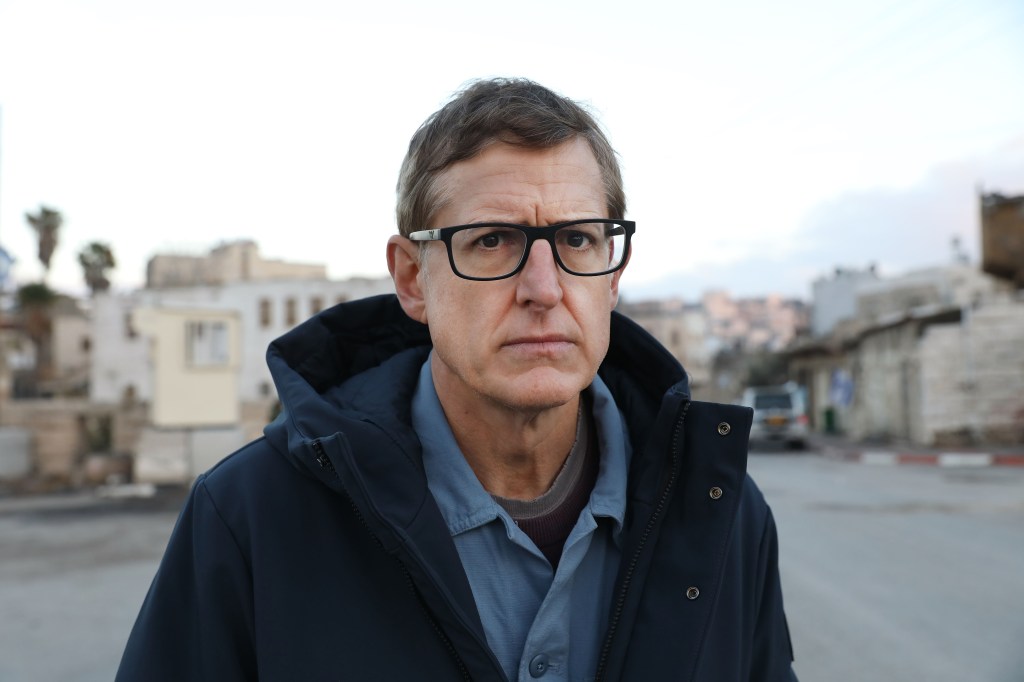“Renowned documentary filmmaker Louis Theroux is set to return to the West Bank for his latest BBC documentary, delving deeper into the complexities and contradictions of life in this troubled region. With his trademark blend of empathy, curiosity, and unwavering commitment to telling the stories that need to be told, Theroux will once again immerse himself in the lives of those living in the West Bank, exploring the intricacies of occupation, resistance, and daily life under the shadow of conflict.

The Return of Louis Theroux to the West Bank
Documentary Background and Significance

Gazing across the dusty plains and settlements of the West Bank, a familiar figure returns. Louis Theroux, known for his unflinching explorations into the fringes of society, is back with a new documentary, “Louis Theroux: The Settlers”, revisiting a landscape he first documented in 2010 with his film “The Ultra-Zionists”. The choice to return to this volatile region, 15 years on, holds profound significance, particularly in light of the escalating tensions and violence following the Hamas attack on Israel on October 7th, 2023. “The Ultra-Zionists” offered a penetrating look at the Israeli settler community, exposing their fervent ideologies and the growing friction between them and the Palestinian population. The film sparked controversy, prompting both praise for its unflinching honesty and criticism for potentially giving a platform to extremist views.
Now, in the aftermath of a devastating attack that claimed the lives of 1,200 Israelis and resulted in the kidnapping of hundreds more, the West Bank stands at a crossroads. The documentary promises to delve into the complex dynamics at play, exploring how the Hamas attacks have emboldened the settlers and further entrenched the conflict.

Louis Theroux’s Approach and Motivations
Theroux’s fascination with ideologues and fundamentalists across the spectrum is well-documented. His previous work, from exploring the world of white supremacists in “White Right: Meet the Enemy” to delving into the lives of Scientologists in “The Scientologists”, showcases his commitment to understanding the complexities of belief systems and their impact on individuals and society. The West Bank is a fertile ground for this type of exploration. The settlements, considered illegal under international law, represent a potent symbol of the conflict, and the settlers themselves embody a range of ideologies, from those seeking a peaceful coexistence to those advocating for forceful expulsion of Palestinians.
Theroux’s decision to revisit the West Bank is driven by a desire to provide a nuanced understanding of a deeply complex situation. In his words, he wants to “see settler expansionism up close, and the human cost it entails.” His focus on the “extreme end” of the settler community suggests that he aims to shed light on the voices and perspectives that often remain hidden, offering a glimpse into the motivations and fears driving those who feel most alienated by the conflict.
The documentary is also expected to explore the universal themes of tribalism and the dangers of dehumanization. As Theroux states, the story is not just about the specific situation in the West Bank but also about “the ways in which we can blind ourselves to the humanity of those around us.” This resonates deeply with current global anxieties surrounding political polarization and the rise of extremism.
The Settlers and the Israeli Government
The Israeli settlements in the West Bank are a highly contentious issue, both domestically and internationally. Israel claims the land based on historical and religious connections, while Palestinians argue that the settlements are a violation of their rights and a major obstacle to peace. The international community overwhelmingly considers the settlements illegal under international law, citing the Fourth Geneva Convention, which prohibits an occupying power from transferring its own population into occupied territory.
Despite this, the settlements have continued to expand, protected by the Israeli government and military. This support has been a key factor in emboldening the settlers, leading to increased violence and intimidation against Palestinians. Following the Hamas attack, the settlers have been further empowered, with some even calling for the annexation of the West Bank.
This expansion is not simply a matter of physical territory. The settlers have achieved significant political influence, with their supporters holding key positions in the Israeli government. This has created a situation where the settlements are deeply embedded in the Israeli political system, making it more difficult to find a peaceful resolution to the conflict.
The Documentary’s Production and Release
Commissioning and Production Team
The documentary, a Mindhouse production for BBC Two and BBC iPlayer, is the culmination of a collaboration between experienced professionals. Clare Sillery, Head of Documentary Commissioning at the BBC, commissioned the project, recognizing Theroux’s unique ability to tackle complex and sensitive topics. Fran Baker serves as the commissioning editor, overseeing the project’s development and production. The director is Josh Baker, bringing his expertise to capturing the essence of the story. Sara Obeidat, the senior producer, plays a crucial role in managing the production process, while Matan Cohen, the producer, ensures the smooth execution of the project. Emily Wallace is the production manager, overseeing the logistical aspects of the filming. Finally, Fiona Stourton and Arron Fellows, as executive producers, provide strategic guidance and support throughout the production journey.
Global Sales and Distribution
BBC Studios Distribution will handle the global sales of “Louis Theroux: The Settlers”, ensuring that the documentary reaches a wide audience. This international reach is vital for raising awareness about the complexities of the Israeli-Palestinian conflict and encouraging dialogue and understanding.
Release on BBC iPlayer and BBC Two
The documentary will be available on both BBC iPlayer and BBC Two, offering viewers multiple platforms to access this important and timely story. This strategic release across BBC’s platforms ensures maximum visibility and accessibility for a wide range of audiences.
Implications and Analysis
Escalating Violence and Tensions
The release of “Louis Theroux: The Settlers” coincides with a period of heightened tension and violence in the West Bank. The Hamas attacks on Israel, coupled with the settlers’ intensified expansionist agenda, have created a dangerous and volatile situation. Theroux’s film is likely to shed light on the human cost of this escalating conflict, raising awareness of the suffering on both sides and the urgent need for a peaceful resolution.
Universal Themes and Insights
Beyond the specific context of the Israeli-Palestinian conflict, “Louis Theroux: The Settlers” is expected to explore universal themes of tribalism, extremism, and the dangers of dehumanization. These themes are increasingly relevant in a world grappling with political polarization, social division, and the rise of hate speech. Theroux’s insightful exploration of these issues has the potential to spark important conversations and encourage critical reflection on the complexities of human behavior.
Relevance to the Global Audience
The Israeli-Palestinian conflict is a complex and often misunderstood issue. Theroux’s documentary, with its characteristic blend of empathy, critical analysis, and unflinching honesty, has the potential to bridge divides and foster greater understanding among global audiences. By providing a platform for diverse voices and perspectives, the film can contribute to a more nuanced and informed discussion about one of the world’s most enduring conflicts.
Conclusion
A Challenging Return: Louis Theroux’s West Bank Documentary
In this thought-provoking article, we delved into the highly anticipated BBC documentary series by Louis Theroux, where he returns to the West Bank to shed light on the complexities of the Israeli-Palestinian conflict. Through his in-depth interviews and observations, Theroux humanized the lives of individuals caught in the midst of this longstanding dispute, challenging viewers to re-evaluate their understanding of the situation. Key points highlighted the dire living conditions, economic struggles, and the emotional toll of occupation on Palestinian communities. Additionally, Theroux’s documentary also explored the nuances of Israeli society, showcasing the perspectives of settlers and the complexities of their lives.
The significance of this documentary lies in its ability to spark empathy and understanding among audiences. By offering a first-hand account of the West Bank’s realities, Theroux’s work encourages viewers to question their assumptions and biases. As the conflict continues to evolve, this documentary serves as a timely reminder of the human cost of politics. The implications of this documentary extend beyond the screen, sparking conversations about the role of media in shaping public opinion and the importance of nuanced storytelling in conflict resolution. As we move forward, it’s crucial that we continue to engage with these complex issues, fostering a culture of empathy and understanding that can help bridge the gap between nations.
As Louis Theroux’s documentary series comes to a close, one question lingers: what can we do to make a difference? By listening to the stories of those affected by the conflict, we can begin to break down the barriers that separate us. As Theroux himself noted, “the most important thing is to listen and to be willing to be challenged.” It’s a powerful reminder that, even in the face of adversity, empathy and understanding can be the first steps towards a more just and peaceful world.






Add Comment